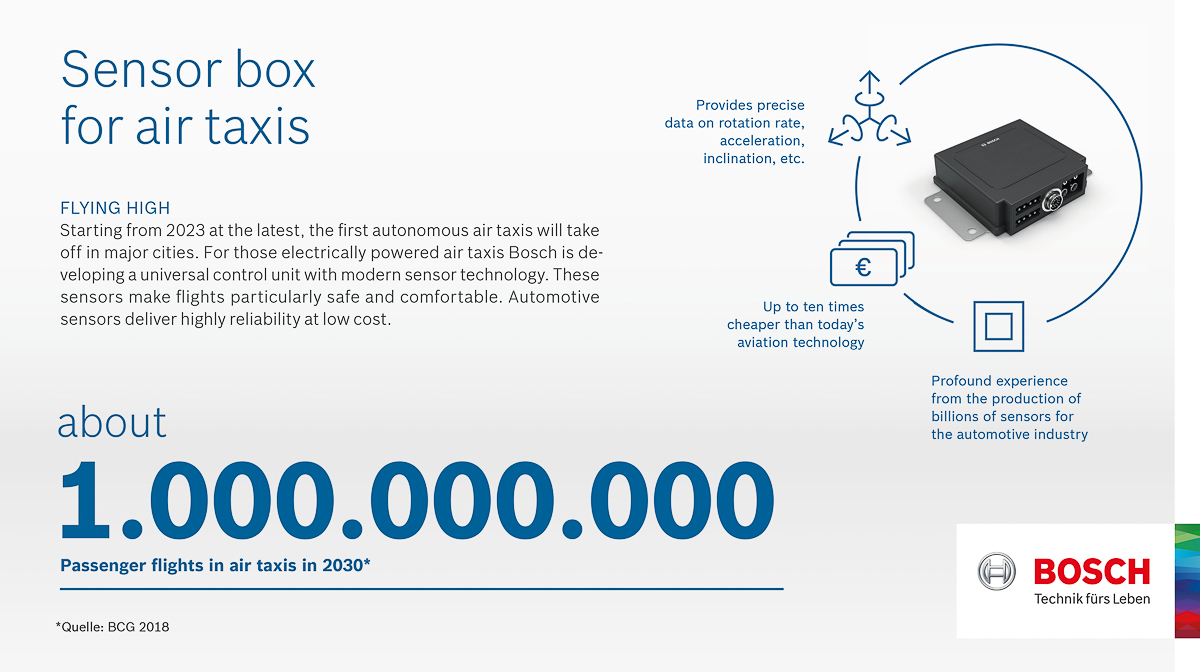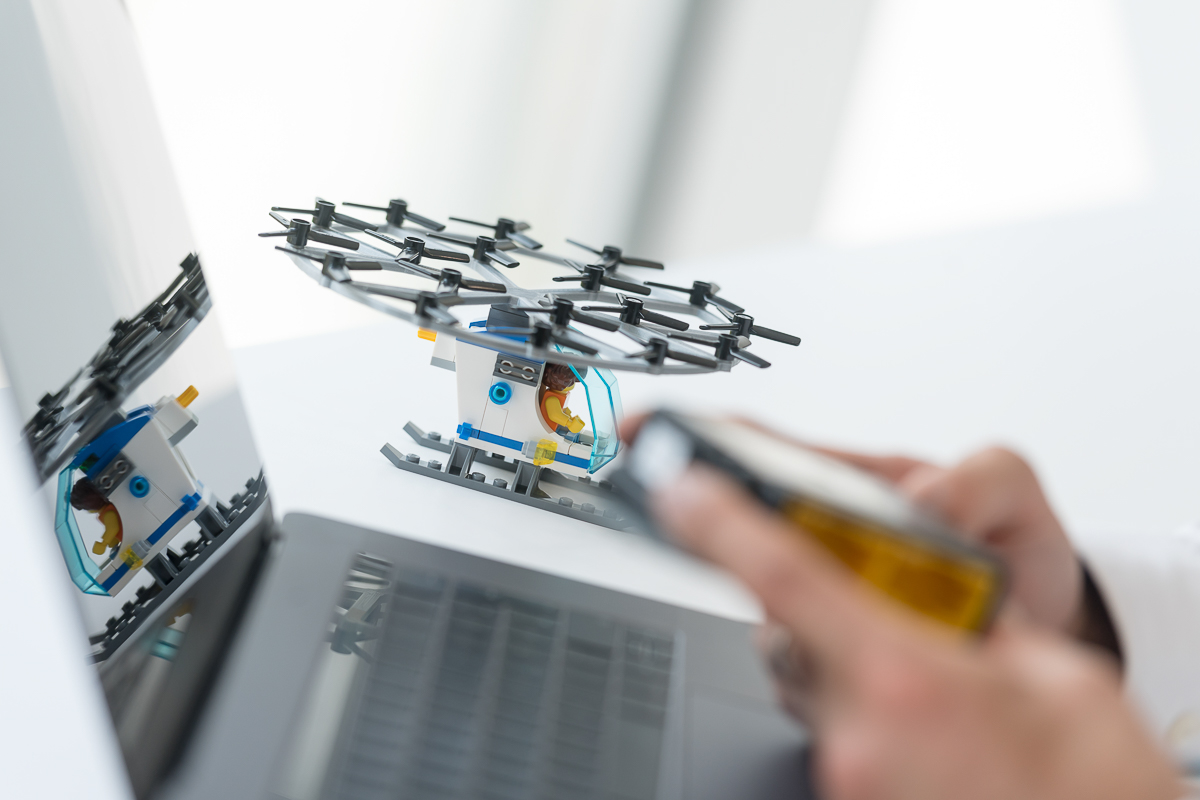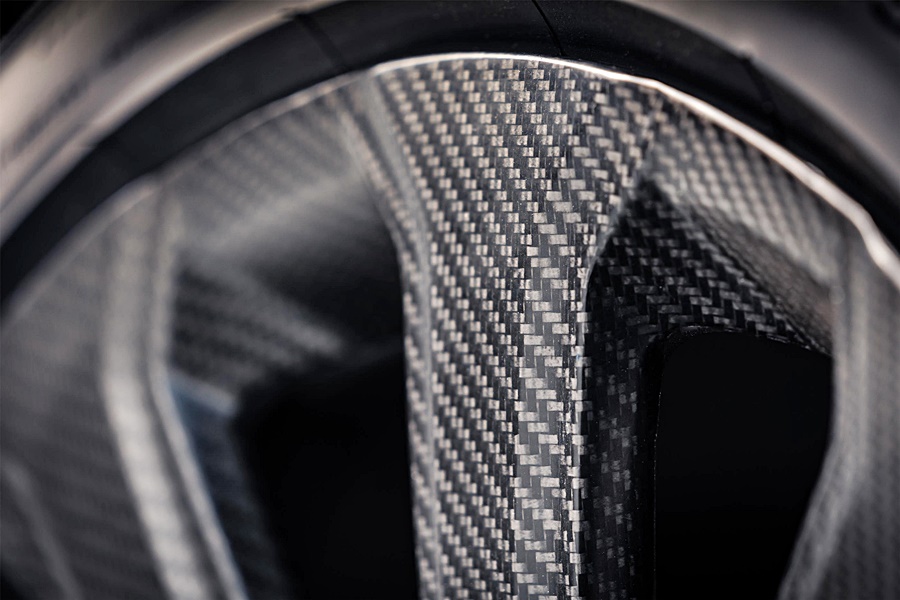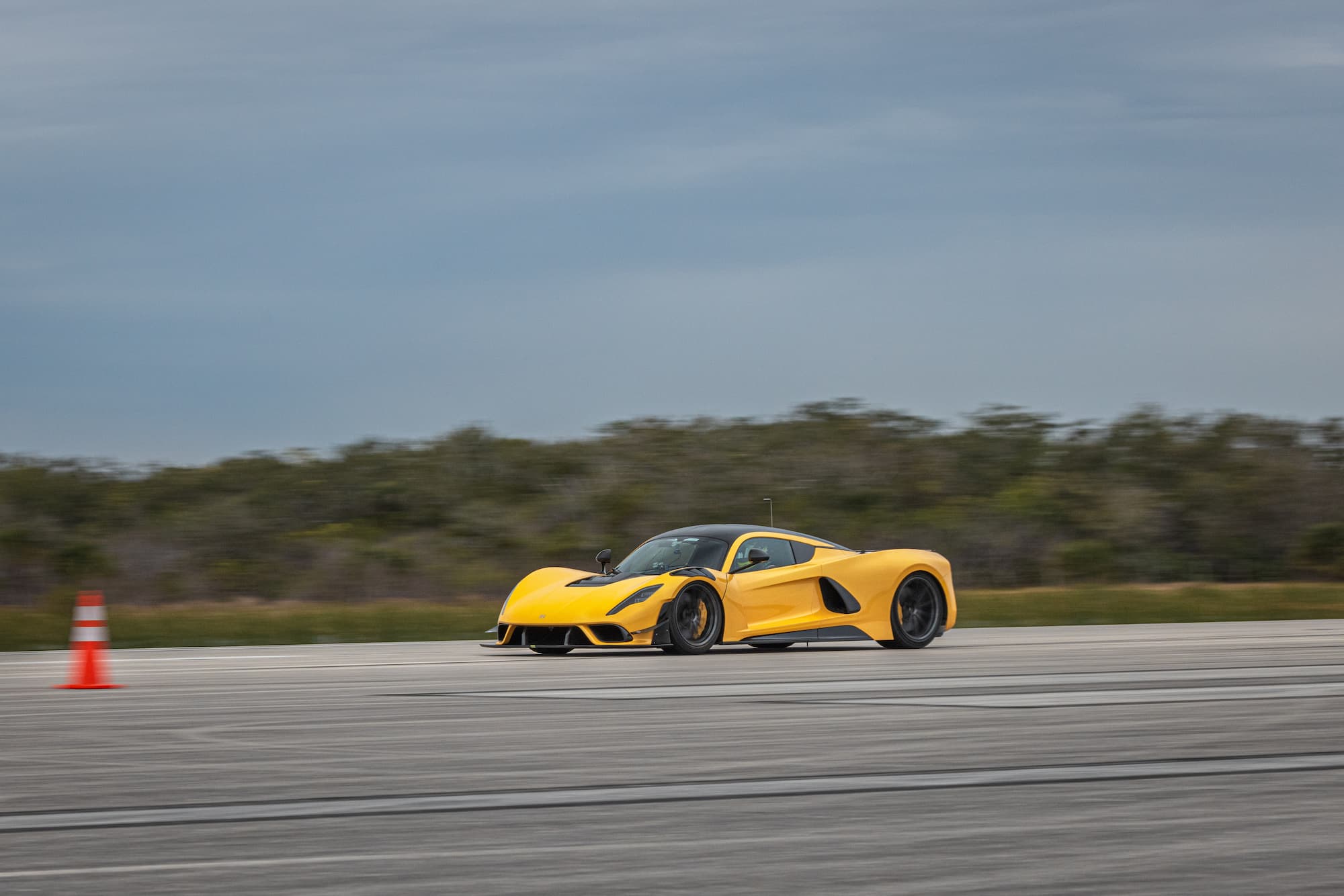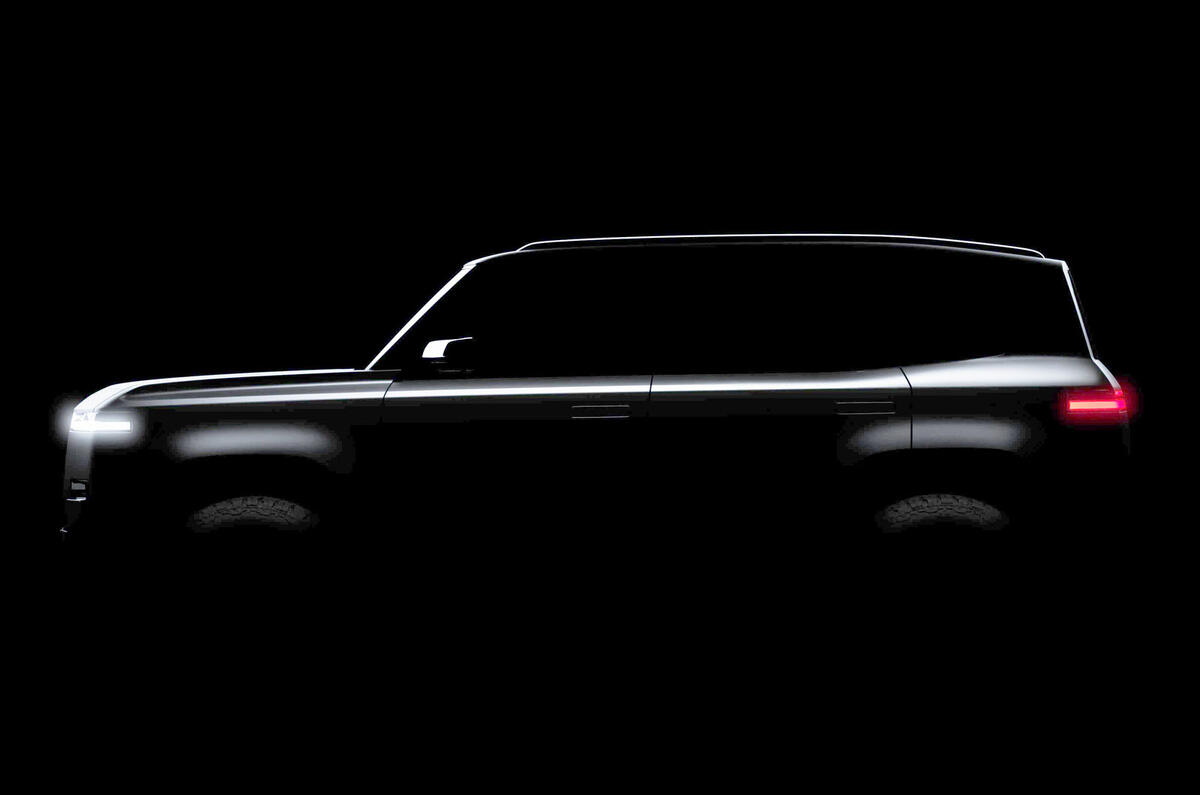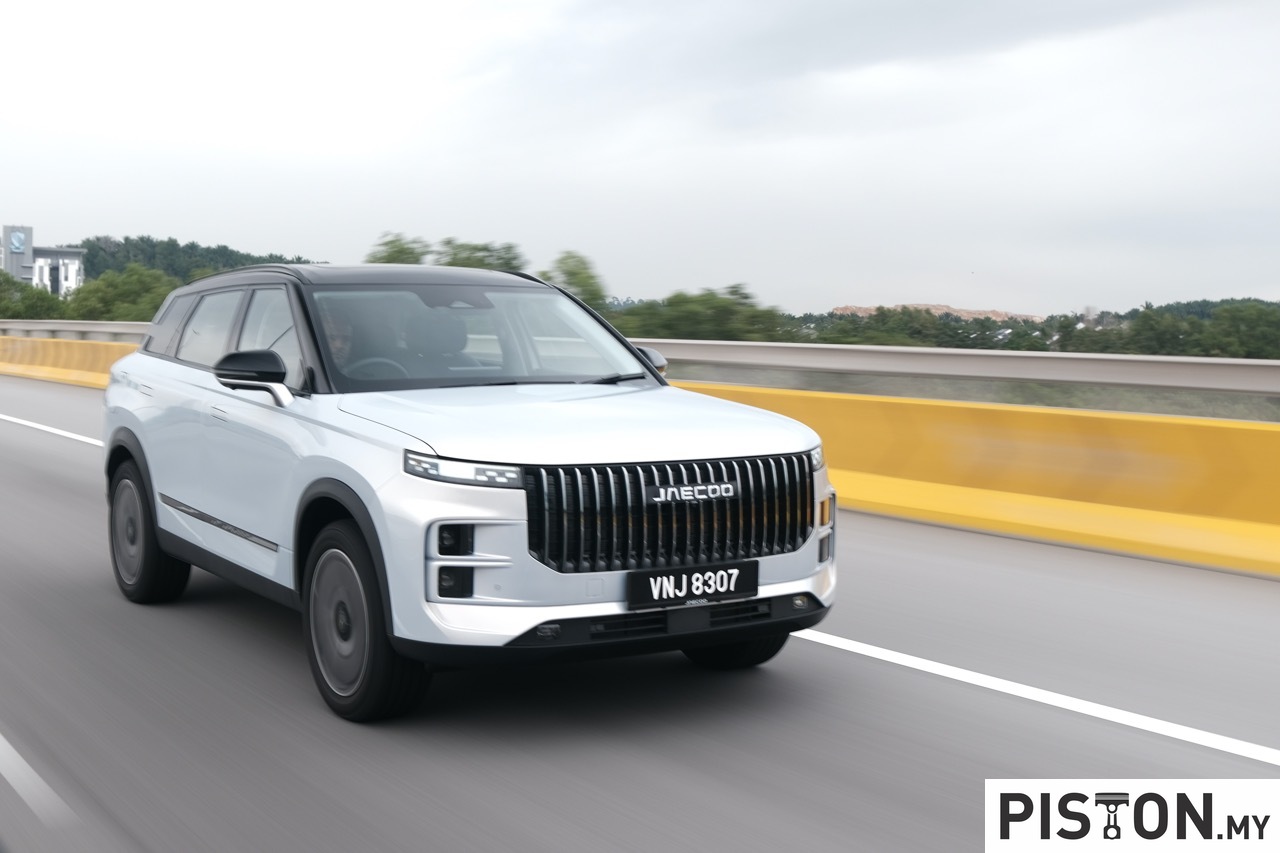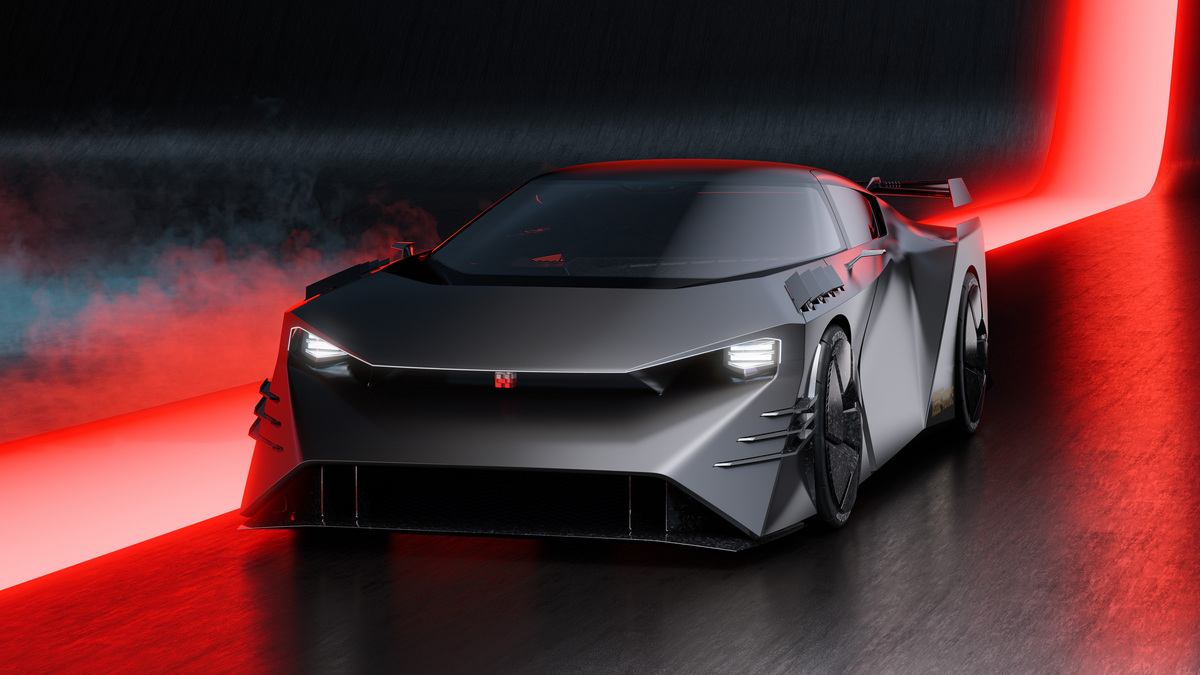The future of mobility is looking more and more promising by the day as more companies are developing and investing on the prospect of flying cars. With a ‘closer to reality’ prediction of around a billion flights flown using air taxis by 2030, Bosch has decided to invest on the rapid development of state-of-the-art sensor technology to make these flights especially safe, comfortable, and convenient.
Bosch predicts that the first air taxi will take off in urban cities starting 2023 and the company is planning to be one of the leading roles in the overall development of the flying car market. This has been decided by Bosch since the current aerospace technology is too expensive, bulky, and heavy to be used in autonomous flying taxis. This is where their technology will come in handy.
Their technology will be based on the ones used for automated driving as well as safety systems like ESP (Electronic Stability Program) anti-skid system will bridge the gap closer to the real possibility of a safe and reliable flying car. Bosch’s team of engineers plans to combine a number of these sensors together to develop one universal control unit that can and should work for the basics of air taxis.
These sensors will take readings and pressures of yaw-rate, magnetic field, pressure sensors and dynamic readings to determine the vehicle’s current speed, flying angle, direction of travel, and altitude all in one package. The best part is that Bosch plans to build this said sensor at a very affordable price.
The future of flying cars and air taxis is looking brighter by the day and with Bosch currently in the mix, we can expect that this service will be more affordable than initially anticipated for anyone and everyone.






